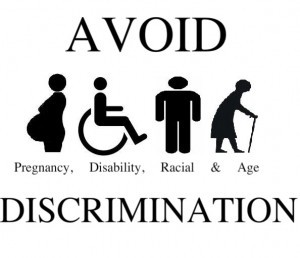Most real estate owners and operators are familiar with the Americans with Disabilities Act of 1990 (the “ADA”) (42 U.S.C. §§ 1211, et seq.). The ADA prohibits discrimination, and is intended to ensure equal access for the disabled in public places. The ADA’s proactive companion legislation, the Federal Fair Housing Act (“FHA”) is a remedial statue, intended to provide fair housing, free from discrimination, in residential properties throughout the United States. (42 U.S.C. §§ 3601, et seq.)
California’s counterpart to the FHA, the Fair Employment and Housing Act (“FEHA”) (California Government Code § 12900, et. seq.) goes even further than the FHA, requiring Homeowner Associations (“HOAs”) and landlords to provide “reasonable accommodations” to ensure that the disabled are not prevented from enjoying the full use of their homes and apartments.
In California, every landlord, HOA and property manager should be familiar with FEHA, a sweeping legislative scheme liberally construed to achieve the objective of allowing all persons to: “Seek, obtain and hold housing without discrimination.” (Cal. Gov’t. Code § 12933.) FEHA specifies it is discriminatory to refuse “to make reasonable accommodations in rules, policies, practices, or services, when these accommodations may be necessary to afford a disabled person equal opportunity to use and enjoy a dwelling.” (Cal. Gov’t Code § 12927(c)(1).) Additionally, it is unlawful for “the owner of any housing accommodation to discriminate against or harass any person because of the race, color, religion, sex, sexual orientation, marital status, national origin, ancestry, familial status, source of income, or disability of that person.” (Gov. Code, § 12955(a).)
In order to require a “reasonable accommodation,” the disabled must demonstrate:
1. a disability, within the meaning of FEHA;
2. the landlord, HOA or property management company, know or reasonably should know of the disability;
3. the requested “accommodation” appears to be necessary to afford “an equal opportunity to use and enjoy the dwelling,” and
4. the accommodation is “reasonable.”
 For example, refusing to provide a designated parking space as an accommodation might be found to be discriminatory, because it affects the disabled person’s use and enjoyment of the dwelling. Similarly, refusing to allow a service animal based on a “no pets” policy might constitute a failure to provide a “reasonable accommodation.” Because FEHA must be liberally construed in favor of the protected classes, it would be prudent to err on the side of caution before denying a disabled resident’s request for an accommodation. Violations of FEHA can be costly to landlords, HOAs and property managers, because remedies may include awards of money damages, injunctive relief, punitive damages, and attorney fees.
For example, refusing to provide a designated parking space as an accommodation might be found to be discriminatory, because it affects the disabled person’s use and enjoyment of the dwelling. Similarly, refusing to allow a service animal based on a “no pets” policy might constitute a failure to provide a “reasonable accommodation.” Because FEHA must be liberally construed in favor of the protected classes, it would be prudent to err on the side of caution before denying a disabled resident’s request for an accommodation. Violations of FEHA can be costly to landlords, HOAs and property managers, because remedies may include awards of money damages, injunctive relief, punitive damages, and attorney fees.

